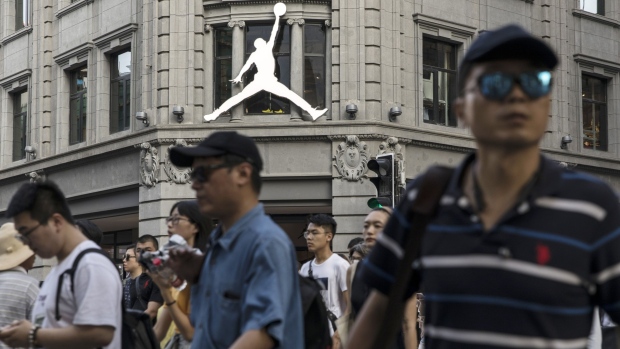Feb 4, 2020
Nike says coronavirus will have 'material impact' on China sales
, Bloomberg News

Nike Inc. said it has closed about half of its company-owned stores in China as a result of the coronavirus outbreak, which it expects to have a “material impact” on its operations in the country.
The stores that remain open are operating at reduced hours, as retail traffic has dropped as a result of the outbreak, the Oregon-based sportswear giant said in a statement Tuesday after the close of trading.
The company’s shares fell as much as 3.3 per cent in after-hours trading.
Nike is the first big consumer company to cite “material” impact from the virus on its business in China. While Starbucks Corp. has closed half of its stores -- about 2,000 in total -- and Apple Inc. said it will have an impact on its supply chain, most major corporations have said it’s too to soon to assess the financial effect from the rapidly spreading epidemic.
“First and foremost, our thoughts are with the people affected and we remain focused on the health and safety of our teammates and partners,” new Nike Chief Executive Officer John Donahoe said in the statement. “Despite this difficult situation, Nike’s long-term opportunity to continue to serve consumers in Greater China with inspiration and innovation remains exceedingly strong.”
China has long been considered Nike’s greatest growth area. The company generated US$6.2 billion in sales in the region last year, up from US$2.6 billion in 2014. The area’s share of overall Nike revenue nearly doubled in that same period.
It’s unclear how the outbreak might affect Nike’s sourcing and production in the country. Nike manufactures about 23 per cent of its footwear and 27 per cent of its apparel in China.
Nike leases a large office in Shanghai, its headquarters for Greater China. It also owns a distribution facility in Taicang.
The company said it will give more guidance when it reports earnings in March for its fiscal third quarter, which ends this month.





